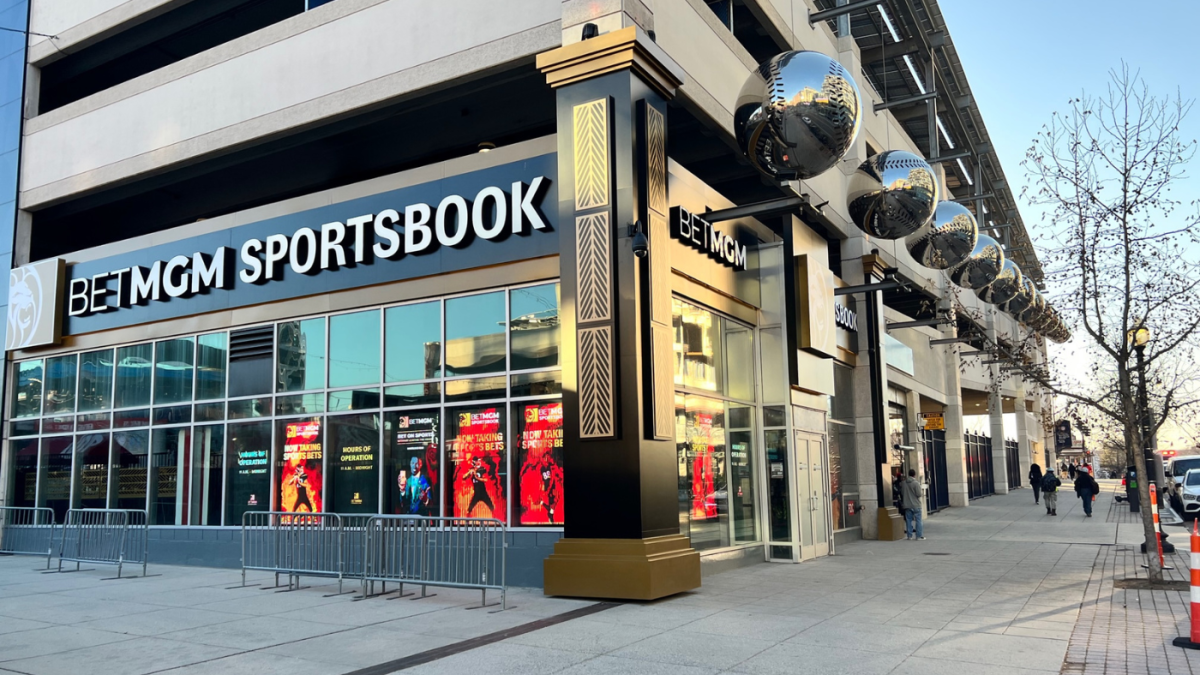Sports
Commissioner Rob Manfred says MLB was ‘dragged’ into legalized sports betting, praises integrity unit

Recreational sports gambling continues to grow and is firmly cemented as a mainstream component of sports fandom, as prominent as NCAA tournament brackets and fantasy sports. Last year, we wrote about how Major League Baseball is attempting to maintain its integrity while looping in gambling with the fan experience and also trying to avoid ostracizing the fans who are against gambling.
In light of Shohei Ohtani’s interpreter scandal, in which Ippei Mizuhara has been accused of stealing millions of dollars from the two-way superstar and using it to illegally gamble on sports, as well as issues in the NBA and college sports, MLB commissioner Rob Manfred was asked Monday at the 2024 Associated Press Sports Editors Commissioners Meetings if the league has decided to shift its stances toward gambling.
Specifically, prop bets are an area of concern, where fans can bet on individual outcomes from specific events, like an at-bat. In a worst-case scenario, it would be much easier for an individual player to be compromised. For example, if you bet on a hitter to strike out at least twice in a game, he could, in theory, rather easily strike out twice on purpose. Convincing an entire team to lose a World Series to fulfill a preseason bet would be much harder.
“We’ve been on prop bets from the very beginning. When we lobby in states, there’s always certain types of bets that we have lobbied against — I mean, the first pitch of the game, we really don’t want that available as a prop bet,” Manfred said.
In the Ohtani scandal, Mizuhara, the interpreter, was making the illegal bets, Manfred reminded the room: “We haven’t had a player that was involved.”
“When you have problems in our sport or in other sports, it makes you refocus your efforts but we really do think that our integrity program — in terms of the monitoring and data available to us — protect the sport,” he said.
MLB has employed for years a full-time integrity and compliance team. Players are allowed to gamble legally on other sports, but are not permitted to gamble on any diamond sports. That includes, obviously, Major League Baseball, but also any level of baseball or softball. In 2015, then-Marlins pitcher Jarred Cosart was fined for illegal gambling, but was found to have not gambled on baseball.
Manfred noted that the University of Alabama baseball scandal, which cost the coach his job, came to light because the betting occurred at an MLB ballpark; the $100,000 bet was placed at the BetMGM sportsbook at Great American Ball Park at someone connected to Alabama head coach Brad Bohannon. For Manfred, that was evidence of the MLB integrity system at work, catching fishy gambling activity and all.
Manfred also offered up a curious quote regarding legalized MLB gambling.
“We were kind of dragged into legalized sports betting as a litigant in a case that ended up in the Supreme Court,” he said with a laugh. “Having said that, I recognize — probably better today than when we were involved in that litigation — that one of the advantages of legalization is it’s a heck of a lot easier to monitor what’s going on than it is with an illegal operation.”
The case Manfred is discussing is Murphy vs. National Collegiate Athletic Association from 2018. The court essentially ruled a federal law preventing states from legalizing sports gambling was unconstitutional. In the years since, a large number of states have legalized gambling and we’ve seen the explosion unfold.
At the time, MLB issued the following statement:
“Today’s decision by the United States Supreme Court will have profound effects on Major League Baseball. As each state considers whether to allow sports betting, we will continue to seek the proper protections for our sport, in partnership with other professional sports. Our most important priority is protecting the integrity of our games. We will continue to support legislation that creates air-tight coordination and partnerships between the state, the casino operators and the governing bodies in sports toward that goal.”
Still, it’s remarkable to hear a commissioner of a sport say “we were dragged into” it. It’s true that the league didn’t have much of a choice regarding the public being allowed to bet on it, but there are gambling ads splashed all over the place and the league can be seen to be embracing it. There are sportsbooks installed in multiple stadiums.
The rest of what he’s saying all makes great sense, though. He’s right that legalized betting is much easier for authorities to monitor than an underground system of bookies. Remember, the Mizuhara issue was with an illegal bookie.
“I also think that the fallout pieces of it, in terms of pressure being put on athletes and what not, if they get into trouble, the potential for that is much less when you’re talking about a legalized operation than when you’re talking about illegal,” Manfred said.
“We find ourselves in this world and you can make an argument from an integrity perspective we’re in a better position.”









/cloudfront-us-east-1.images.arcpublishing.com/pmn/7I3LKKUYMNEQNOKSZ6GJEBQCFY.jpg)
